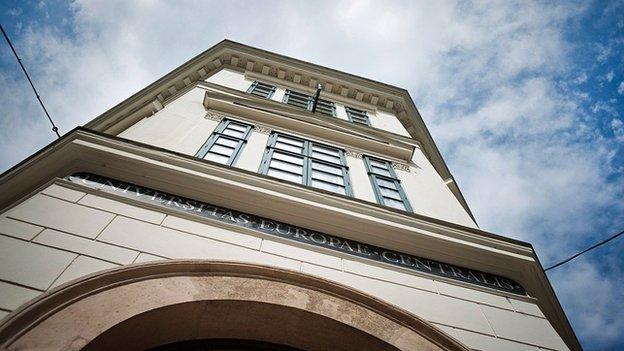Hungary university backed by Soros 'is facing closure'
- Published
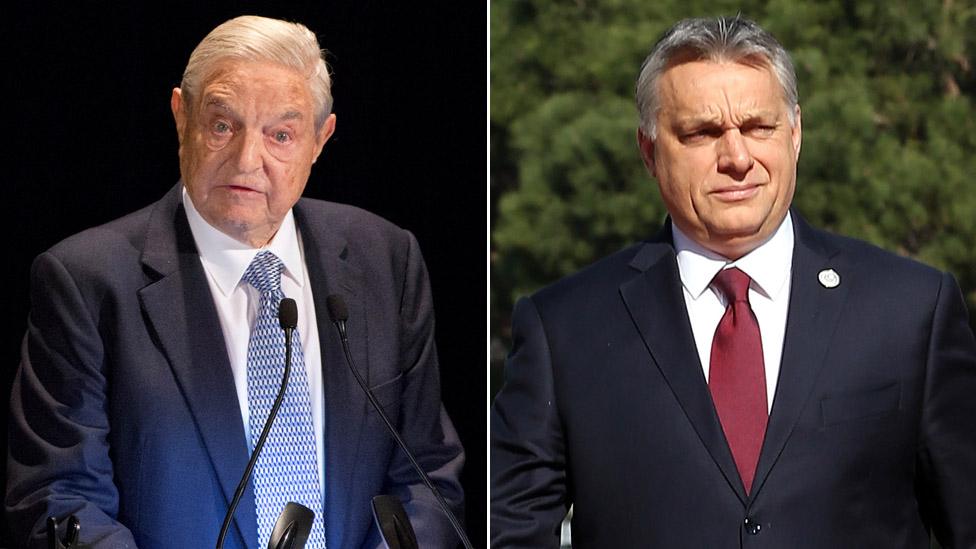
George Soros (left) has a strained relationship with Viktor Orban (right)
Students and staff at the Central European University (CEU) in Hungary are protesting against what they say are government plans to close it down.
The university says new legislation proposed by the right-wing Fidesz government on Tuesday night makes it impossible for it to function.
The CEU's founder, philanthropist George Soros, has a strained relationship with the PM Viktor Orban.
But the government says it supports the university and does not want it to go.
Education Secretary Laszlo Palkovics said the proposed legislation followed a review of 28 foreign universities operating in Hungary, including the CEU in Budapest.
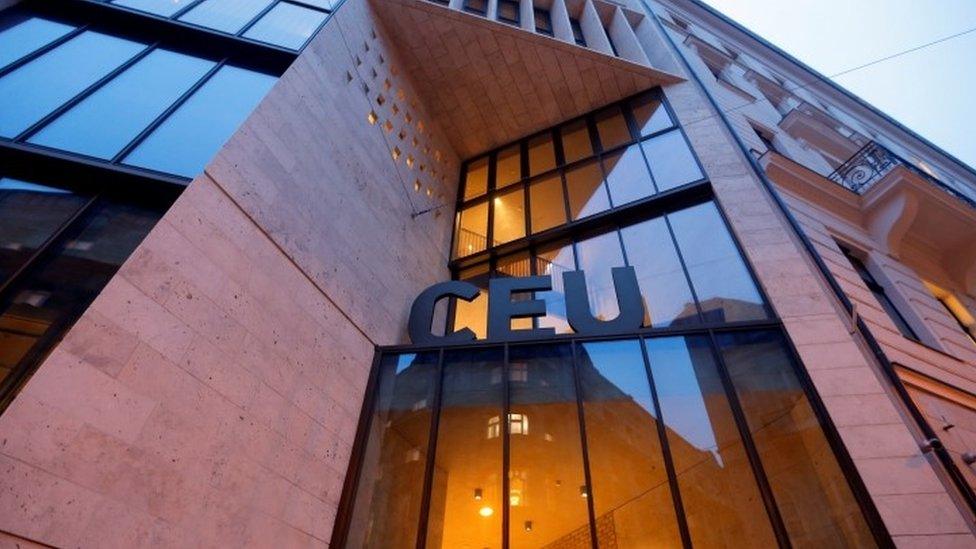
The Central European University (CEU) was founded by Mr Soros as a bastion of liberal thought
"This is not an anti-CEU investigation and not against Mr Soros," he said.
The Hungary-born billionaire founded the university in 1991 and continues to fund it.
He wanted the CEU to be a bastion of liberal thought and promote the values of an open society and democracy.
But the university appears to have become the latest target in a campaign by Prime Minister Viktor Orban's government against liberal values.
The government says the CEU and other foreign-funded universities are operating outside the law, and that the new legislation aims to create a new legal footing.

The BBC's Nick Thorpe in Budapest
The CEU, established and registered in New York State, is an independent, private university for masters and PhD students from more than 100 countries.
If approved by parliament, the law would mean the university can only continue working if an intergovernmental agreement between US President Donald Trump and Hungarian Prime Minister Viktor Orban is signed, and if the university establishes a campus in the US by February next year.
The first is unlikely - both Mr Trump and Mr Orban are sworn enemies of Mr Soros. The second is physically impossible.
Twenty-seven other foreign universities will be affected by the legislation, Education Secretary Laszlo Palkovics told the BBC, and all must abide by the new law.
Only the CEU has no campus in its home country, the US.

But CEU Rector Michael Ignatieff says the university is fully legal and the new law has been designed to disable it.
"We will defend our achievements vigorously against anyone who seeks to defame our work in the eyes of the Hungarian people," he said.
The new rules would force the CEU to change its name, set up a campus in New York, change its curriculum and become subservient to both the US and Hungarian governments.
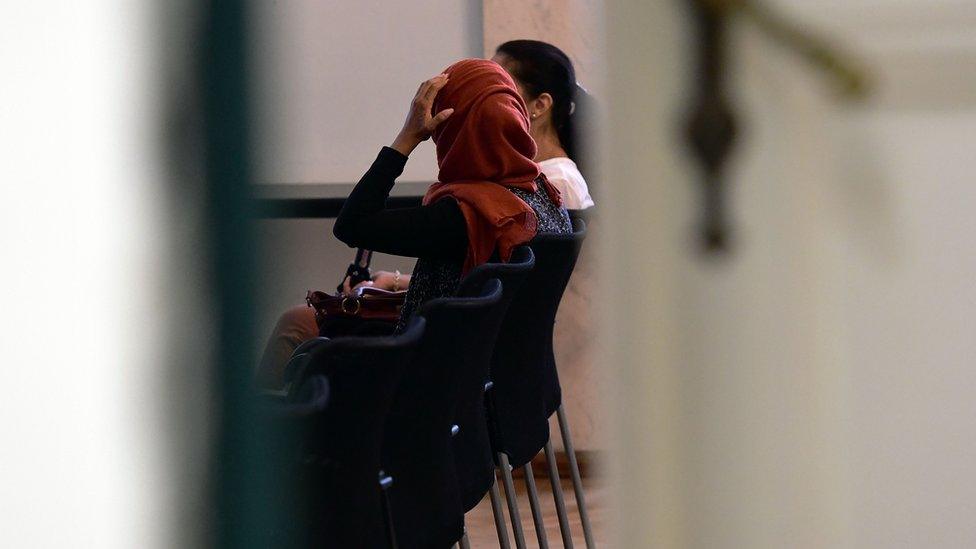
The university runs special courses for refugee students
Protesting staff and students are now seeking the support of other universities, both in Hungary and worldwide.
It comes at a time of deteriorating relations between US President Donald Trump and Mr Soros, who recently described the new occupant of the White House as "an imposter, a [political] conman and a would-be dictator".
Relations between Mr Soros and Mr Orban - a keen supporter of the US president - also became strained when Mr Orban accused him of wanting a role in Hungarian politics and supporting the influx of migrants into Europe.
Mr Orban recently claimed Hungary was "under siege" from asylum seekers.
The prime minister won a scholarship sponsored by Mr Soros to study at Oxford university and the pair were allies in the days immediately following the fall of communism.
But with the two now at loggerheads, NGOs partially funded by Mr Soros' Open Society Foundation are under pressure to close in Hungary.

The Central European University
Founded to "resuscitate and revive intellectual freedom" in parts of Europe that had endured the "horrific ideologies" of communism and fascism
Occupies a building that began as an aristocrat's palace before becoming state-owned offices for a planned socialist economy
Has 1,440 students - 335 from Hungary and the rest from 107 other countries
Presents itself as a champion of free speech, with links to universities in Russia, Kyrgyzstan, Georgia and Kazakhstan

- Published7 March 2017

- Published12 January 2017
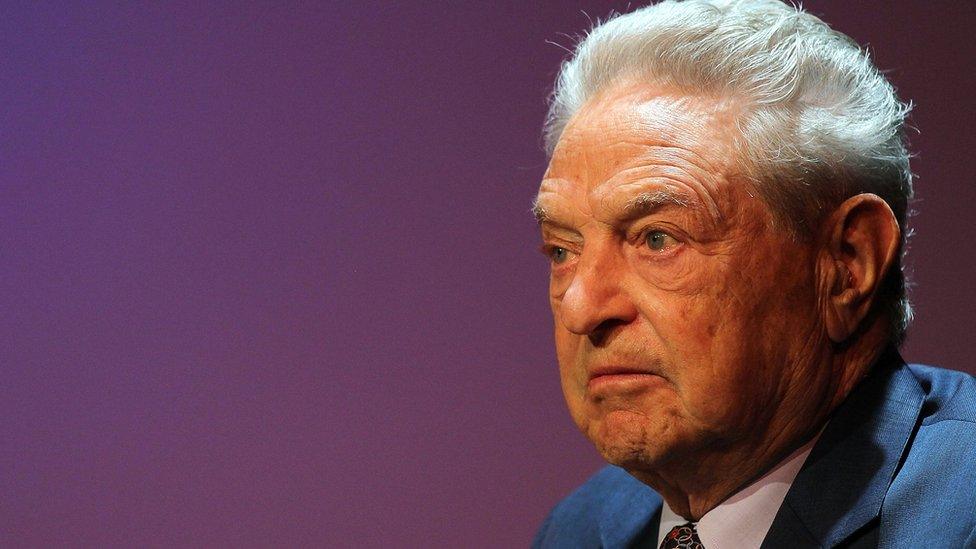
- Published4 September 2015
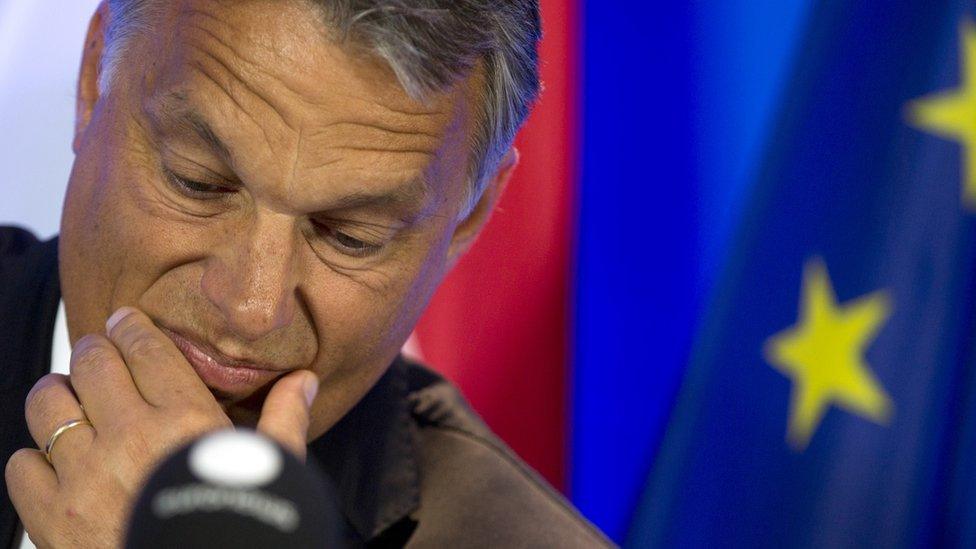
- Published25 June 2016
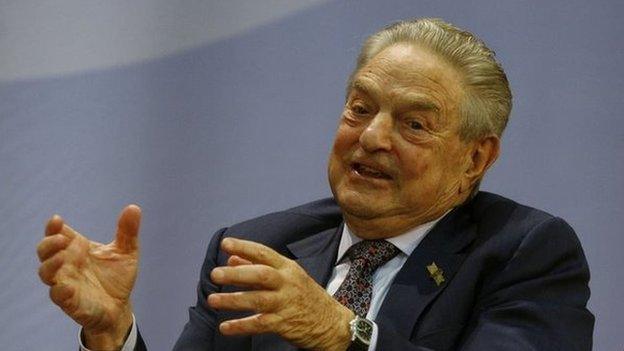
- Published3 December 2014
